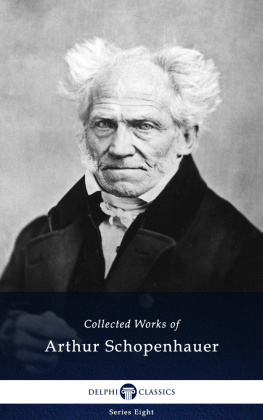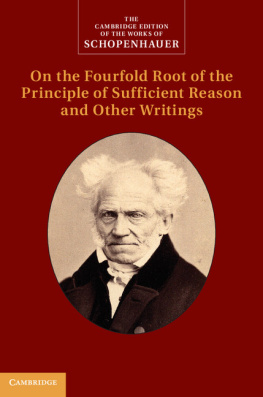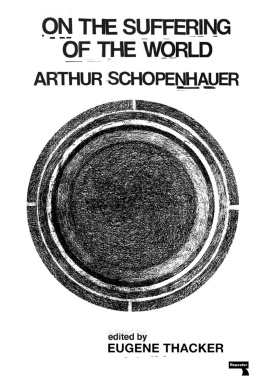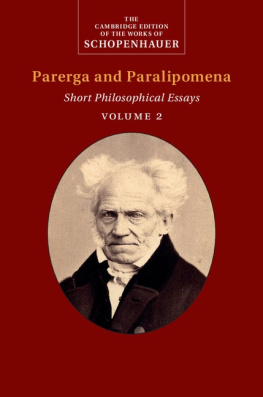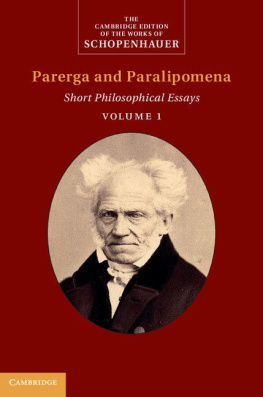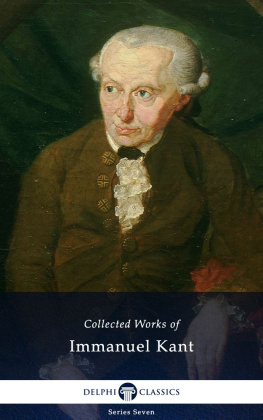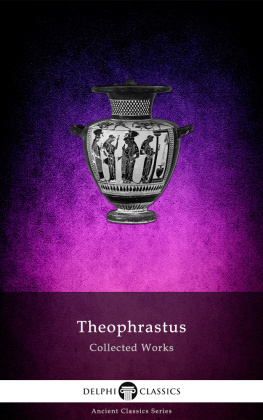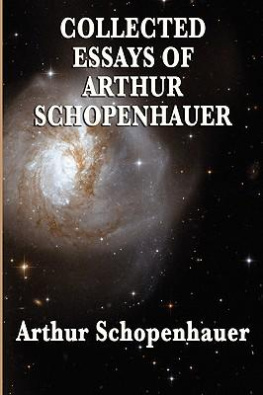Arthur Schopenhauer - Delphi Collected Works of Arthur Schopenhauer (Illustrated)
Here you can read online Arthur Schopenhauer - Delphi Collected Works of Arthur Schopenhauer (Illustrated) full text of the book (entire story) in english for free. Download pdf and epub, get meaning, cover and reviews about this ebook. year: 2017, publisher: Delphi Classics Ltd, genre: Science. Description of the work, (preface) as well as reviews are available. Best literature library LitArk.com created for fans of good reading and offers a wide selection of genres:
Romance novel
Science fiction
Adventure
Detective
Science
History
Home and family
Prose
Art
Politics
Computer
Non-fiction
Religion
Business
Children
Humor
Choose a favorite category and find really read worthwhile books. Enjoy immersion in the world of imagination, feel the emotions of the characters or learn something new for yourself, make an fascinating discovery.
- Book:Delphi Collected Works of Arthur Schopenhauer (Illustrated)
- Author:
- Publisher:Delphi Classics Ltd
- Genre:
- Year:2017
- Rating:3 / 5
- Favourites:Add to favourites
- Your mark:
Delphi Collected Works of Arthur Schopenhauer (Illustrated): summary, description and annotation
We offer to read an annotation, description, summary or preface (depends on what the author of the book "Delphi Collected Works of Arthur Schopenhauer (Illustrated)" wrote himself). If you haven't found the necessary information about the book — write in the comments, we will try to find it.
The German philosopher Arthur Schopenhauer is best known for his 1818 work The World as Will and Idea, which characterises the phenomenal world as the product of a blind and insatiable metaphysical will. Proceeding from the transcendental idealism of Kant, Schopenhauer developed an atheistic metaphysical and ethical system that is viewed by many as an exemplary manifestation of philosophical pessimism. His works on aesthetics, morality and psychology would exert a major influence on existential philosophy and Freudian thinking. This comprehensive eBook presents Schopenhauers collected works, with numerous illustrations, rare texts, informative introductions and the usual Delphi bonus material. (Version 1)
- Concise introductions to the major treatises
- The complete essays, translated by T. Bailey Saunders in seven volumes, with individual contents tables
- Major works include their original hyperlinked footnotes ideal for students
- Excellent formatting of the texts
- The World as Will and Idea translated by R. B. Haldane and J. Kemp, in the much expanded sixth edition of 1909
- Special Essays alphabetical contents list find the essay you want to read easily
- Features three biographies - explore Schopenhauers intriguing life
- Scholarly ordering of texts into chronological order
Please visit delphiclassics.com to browse through our range of exciting titles
CONTENTS:
The Books
ON THE FOURFOLD ROOT OF THE PRINCIPLE OF SUFFICIENT REASON
THE WORLD AS WILL AND IDEA
THE ART OF BEING RIGHT
ON THE WILL IN NATURE
ON THE BASIS OF MORALITY
WISDOM OF LIFE
COUNSELS AND MAXIMS
RELIGION: A DIALOGUE
THE ART OF LITERATURE
STUDIES IN PESSIMISM
ON HUMAN NATURE
THE ART OF CONTROVERSY
The Essays
LIST OF ESSAYS IN ALPHABETICAL ORDER
The Biographies
SCHOPENHAUER by Thomas Whittaker
SCHOPENHAUER by Elbert Hubbard
ARTHUR SCHOPENHAUER by William Wallace
Please visit delphiclassics.com to browse through our range of exciting titles or to purchase this eBook as a Parts Edition of individual eBooks
Arthur Schopenhauer: author's other books
Who wrote Delphi Collected Works of Arthur Schopenhauer (Illustrated)? Find out the surname, the name of the author of the book and a list of all author's works by series.

